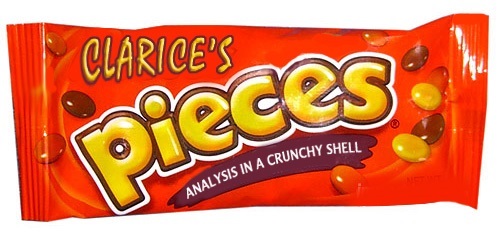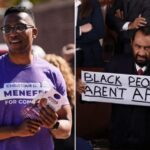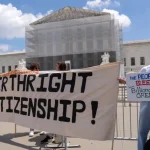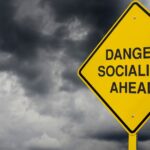
–>
February 12, 2023
If you’ve ever wondered why you can’t find common factual ground with liberal friends, the reason may be that not only have private outfits worked successfully to censor news, but that government agencies as well, from the CDC to the CIA, have successfully censored it by proxy. It’s not just the major media that have been corrupted by the government (acting as megaphones for government agencies and so fearful of offending their sources that they help them cover up wrongdoing), but the new media, which we had supposed would allow alternative sources of information to become more widely available, is severely compromised. This week, following the exposure of pre-Elon Musk-takeover Twitter and the revelations of government censorship of the website, the Select Subcommittee on the Weaponization of the Federal Government began its hearings. The focus to start was on Twitter, but I cannot believe that higher-ranked sites like Facebook are any different. We just do not yet have access to their inner operations. (Speaking as one who never has bullied others or posted pornography or incited criminal behavior there, I am perpetually denied full exposure on Facebook for defying the unclear “community standards” which they claim to be enforcing.)
‘); googletag.cmd.push(function () { googletag.display(‘div-gpt-ad-1609268089992-0’); }); }
Yes, as usual, there were the cameo appearances of the now-fired Twitter executives who admitted they “erred” in suppressing news of Hunter Biden’s laptop and banning the NY Post for daring to report on it, but to my way of thinking, the key witness was law professor Jonathan Turley, who shares my concern about government censorship through website proxies, as was clearly the case with Twitter. His full written testimony is lengthy and I can only pick out some of the key points he made, none of which, I venture to presume, were ever fairly covered in your newspapers or TV news accounts.
He contends that such a role by government agencies violated the First Amendment, noting “Twitter and Facebook clearly had an impact [on our elections] by suppressing certain stories and viewpoints in our public discourse.”
He contends that while these media are private, they can be considered agents of government agencies which are forbidden by the Constitution the role of free speech censors. “‘The ‘marketplace of ideas’ is now largely digital. The question is whether the private bodies engaging in censorship are acting truly independently of the government.” And as we know from the Twitter files, we have good reason to believe they are not independent.
‘); googletag.cmd.push(function () { googletag.display(‘div-gpt-ad-1609270365559-0’); }); }
 Turley summarized the known facts of Twitter interaction and cooperation with federal agencies in suppressing speech. It was extensive, and the federal censorship actions included, Yahoo, Twitch, Cloudflare, LinkedIn, and Wikimedia
Turley summarized the known facts of Twitter interaction and cooperation with federal agencies in suppressing speech. It was extensive, and the federal censorship actions included, Yahoo, Twitch, Cloudflare, LinkedIn, and Wikimedia
The censorship was extensive and ever-increasing. It included “long lists of newspapers, tweets or YouTube videos “deemed to be voicing ‘anti-Ukraine narratives.” Even jokes were nabbed by the social media at the behest of the FBI. Former New York Times reporter Alex Berenson, who was critical of the CDC’s positions on the COVID vaccinations, was eventually suspended after the White House wanted him banned. Others critical of the official government position on treating COVID, who argued for a more focused response to the virus than widespread lockdowns and mandates — Drs. Jayanta Bhattacharya (Stanford) and Martin Kulldorff (Harvard) — were censored. As more information becomes known of the enormous costs of the lockdowns and the limited efficacy of the vaccines and masks and social distancing, we can be truly sorry these voices were suppressed when their views were timely. If nothing else illustrates the significance of free speech, the censorship of the views of these men does.
Whether the censoring of views by Twitter was the result of payoffs, coercion, or consent, the site was, in Turley’s view, acting as an agent of the government.
Turley cautions that we still do not know the full extent of the massive censorship of Twitter and the other major social media, for example, whether the millions of dollars the FBI paid Twitter were “payment for censorship” Moreover, we do not know the extent of government coercion that was applied, but case law supports the argument that censorship by government agents which was achieved through coercion, if that was the case here, violates the Constitution. “In this case, federal officials are clearly acting in their official capacity. Indeed, that official capacity is part of the concern raised by the Twitter Files: The assignment of dozens of federal employees to support a massive censorship system”
These companies have carried out the largest censorship system in history, effectively governing the speech of billions of people.
Even if the claim of agency is not sustained, Turley argues, the government admits that it supported this massive censorship.
‘); googletag.cmd.push(function () { googletag.display(‘div-gpt-ad-1609268078422-0’); }); } if (publir_show_ads) { document.write(“
It is not enough to say the government is merely seeking to silence certain speakers in our collective name and using tax dollars to do so. The FBI and other agencies have massive powers and resources to amplify censorship efforts. The question is whether Congress and its individual members support censorship “whether carried out by corporate or government officials on social media platforms.”
Well, we’ll have to wait and see whether Congress finds this as serious a matter as Professor Turley does, and, if so, how they will act. While I hope they will find an effective means to do so, I note that major media are hardly sympathetic to this cause, providing little — and if any, biased — coverage of the hearings. And at least one congressperson, Debbie Wasserman Schultz, was openly dismissive of Professor Turley, suggesting — contra his contention that he was basing his arguments on “what we know from the Twitter files,” that he was offering no more than “opinion and pure conjecture” because he never worked at Twitter.
<!– if(page_width_onload <= 479) { document.write("
“); googletag.cmd.push(function() { googletag.display(‘div-gpt-ad-1345489840937-4’); }); } –> If you experience technical problems, please write to [email protected]
FOLLOW US ON
<!–
–>
<!– _qoptions={ qacct:”p-9bKF-NgTuSFM6″ }; ![]() –> <!—-> <!– var addthis_share = { email_template: “new_template” } –>
–> <!—-> <!– var addthis_share = { email_template: “new_template” } –>






